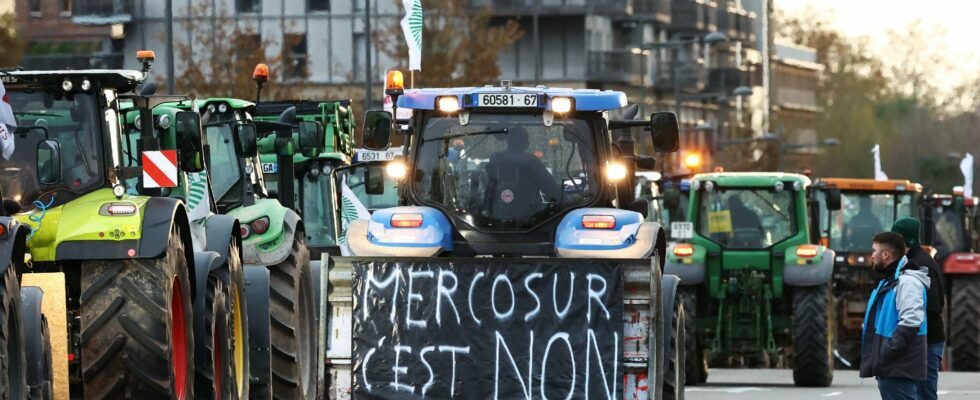Economic surveys that are falling, productivity at half mast, an unemployment rate that is rising… Between the start of 2024, when the government was banking on an “OG effect” and the current period marked by a feeling of loss of control, the contrast is striking. Two elements pushed France towards the doldrums: the dissolution of the National Assembly announced by Emmanuel Macron in June and the slippage in public finances, unprecedented outside of times of crisis. How to bounce back? The slightest headwind today seems capable of plunging the country into the start of a recession. Will the fatal blow come from the bond markets? Unless the trade war or bad weather destroys several sections of our economy, already bloodless even before any budgetary effort. L’Express reviews the main risks facing the new tandem of ministers Eric Lombard (Economy) and Amélie de Montchalin (Budget).
A late frost undermining the vineyards, torrential rains falling on the cereal fields just before the harvest… After two years disrupted by weather hazards, what will 2025 look like for farmers? “Many of them tell themselves that they are not immune to further disappointment and that there is no longer a normal year, that is to say a period of twelve months which is not marked by at least one major climatic hazard”, notes Aurélie Catallo, director of Agriculture France for the Institute of Sustainable Development and International Relations.
However, even if the rains or drought spared farmers next year, we should not count on the sector calming down, warns Thierry Pouch, economist for the Chambers of Agriculture. Faced with the significant drop in income, the financial aid announced by the government – currently blocked due to lack of budget – appears insufficient. The results of the last two years are catastrophic: in 2023, the current income before tax of a cereal and oilseed farm fell by 82.7%, notes Thierry Pouch. The decline continued in 2024, particularly affecting the wine industry.
A calendar conducive to tensions
“There is no simple answer to the problem of farmers’ income. But the aid that has been decided suffers from a lack of long-term thinking, notes Clémence Vorreux, Agriculture coordinator at The Shift Project. Nothing is done to prevent mobilizations from recurring from one year to the next. It’s as if farmers alone had to bear the cost of moving towards a less productive model, one better adapted to climate change. The question of “who pays?” will not fail to fuel tensions in the first quarter. “The calendar lends itself to this: we have the elections of the Chambers of Agriculture in January and the Agricultural Show in February,” confirms Aurélie Catallo. The opportunity for unions to step up to the plate.
An increase in the prices of raw materials on the markets would open up some prospects. “But for that, there would have to be a climatic catastrophe in Ukraine, or in another major producing country,” says a source. For two years, it is rather the glut which characterizes production at the international level. Another concern: trade tensions with China and the United States. Beijing has already announced a tax on cognac and pork. Nobody knows what Trump will do. It could also hamper French exports. All that would be missing, then, would be the beginning of the application of the agreement signed recently between Europe and Mercosur to ignite the powder. In 2024, the agricultural crisis cost France 0.2 points of growth. Its repetition would further hamper the growth of GDP, which already looks set to be faltering.
.
